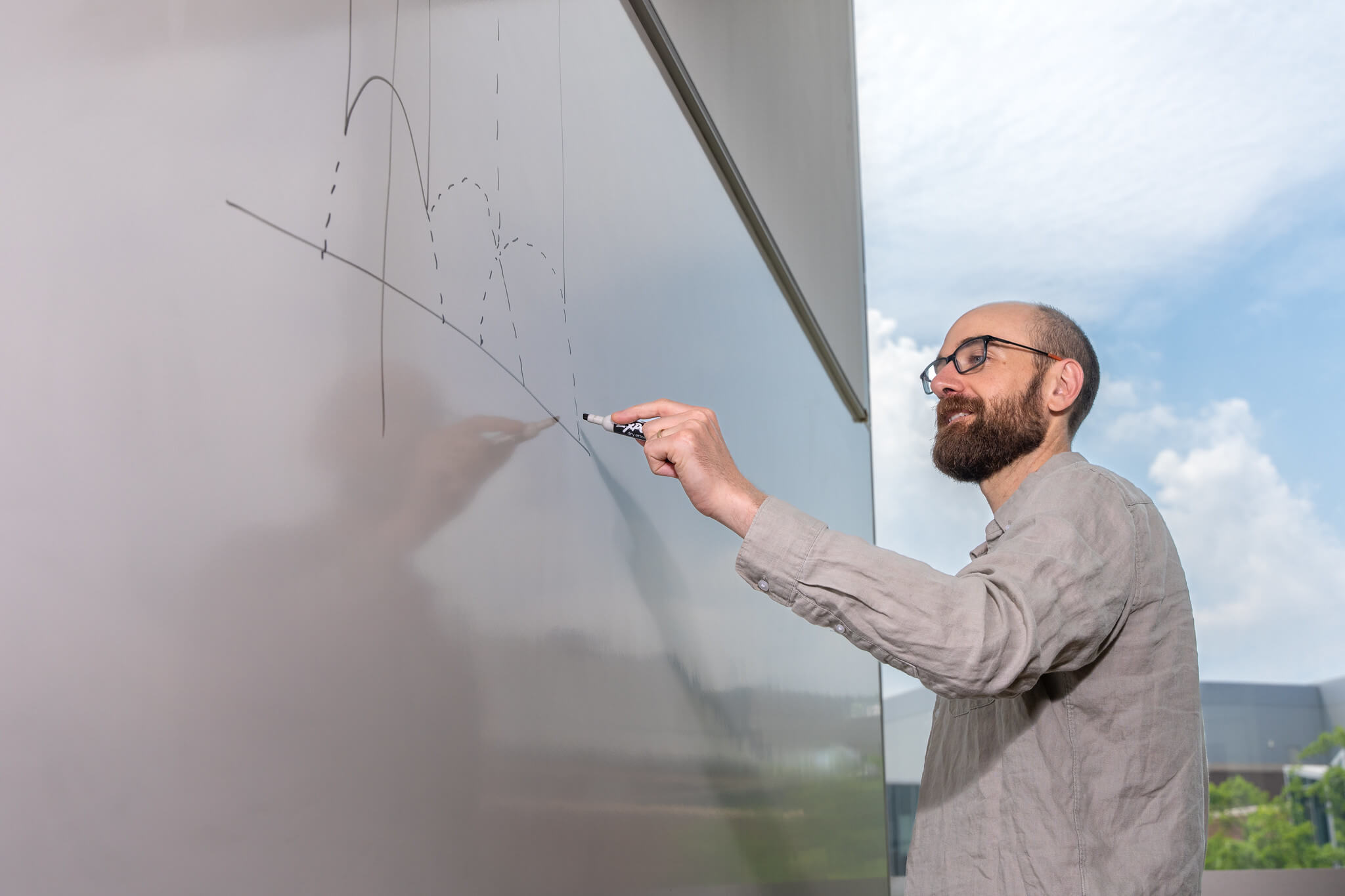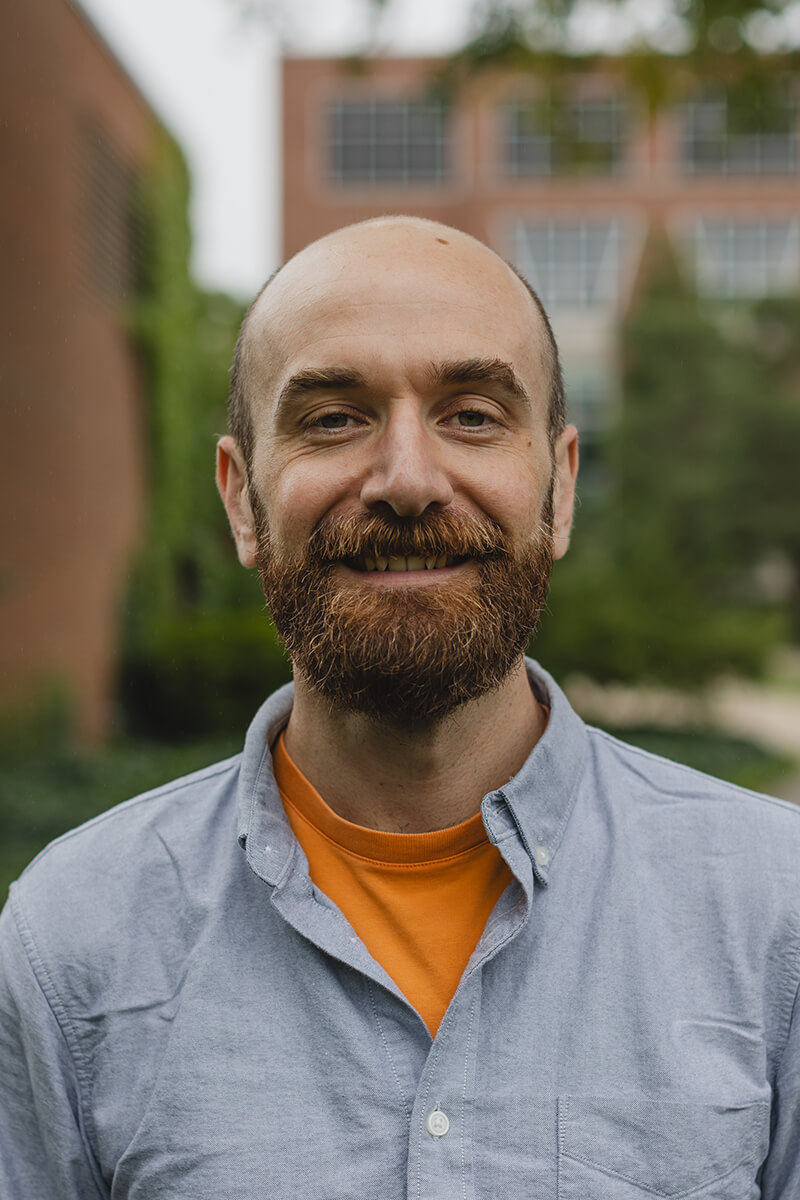Wake receives NSF CAREER Award
Article Highlights
- Preston Wake, an assistant professor in the Department of Mathematics, has received a Faculty Early Career Development, or CAREER, Award from the National Science Foundation.
- The award recognizes Wake’s research on algebraic number theory and dedication to math education at Michigan State University.
- “Many students in my undergraduate classes aren't going to be math professors and have no interest in that. But for all of them, learning how to do computational number theory can teach them valuable transferable skills,” Wake said.
The National Science Foundation has awarded Preston Wake a prestigious 2024 Faculty Early Career Development, or CAREER, Award for his advanced research on algebraic number theory and dedication to math education at Michigan State University.
Over the next five years, he will receive more than $450,000 to further support his work and introduce undergraduates and graduate students to research involving computational number theory.
“I think that number theory has a role in advancing math and science, more generally, because it sometimes finds surprising connections between different areas of math and allows you to import tools from one area of math to study other areas,” Wake said. “I really like the idea of finding interdisciplinary connections between different areas, and being able to talk to other mathematicians whose work is seemingly very unrelated, but trying to understand how what they're doing could be used or is related to things that I know.”
"Professor Wake is an outstanding mathematician and a first-rate teacher. Supported by this grant, he will undertake an ambitious research project on modular forms, special functions of key importance in number theory and complex analysis,” said Jeffery Schenker, chairperson of the Department of Mathematics. “He will also develop new curriculum incorporating computer algebra software into undergraduate mathematics courses. We are excited to see the outcomes of this work."

Number theory is one of the oldest areas of math and also one of the most challenging. Number theory is a branch of pure mathematics devoted primarily to the study of integers, or whole numbers, and arithmetic functions. It involves finding interesting and unexpected relationships between numbers, as well as proving that these relationships are true.
For example, the Pythagorean theorem explains the relationship between the lengths of three sides of a right-angled triangle — denoted A, B and C — with the formula A2 + B2 = C2. There are infinite combinations of integer values for A, B and C that satisfy this equation, such as A = 3, B = 4 and C = 5, or A = 5, B = 12 and C = 13.
But what if you change that problem just a little, by replacing the exponent with any integer greater than two? Even though something like A3 + B3 = C3 looks similar to the Pythagorean theorem, the 17th century mathematician Pierre de Fermat famously posited that there are no integer solutions that satisfy that equation.
It would take more than 300 years for mathematicians to prove this theorem and such proofs elude many other puzzles in number theory.

“Number theory has lots of very complicated problems that people have thought about for thousands of years, and despite technological advances and computers and everything that we know now, they resist any solution,” Wake explained.
Wake’s research incorporates the study of modular forms to help solve some of the questions in number theory. In their simplest form, modular forms are sections of line bundles or lattices. They have a lot of symmetry and exist in spaces with geometries that can be studied and quantified through a variety of mathematical tools. If two or more modular forms are congruent to each other, that suggests something interesting is happening in terms of number theory, Wake said.
“I was always pretty good at math, but I thought that math was something that you were supposed to learn to do science,” said Wake, who grew up just outside of Toronto. He admitted to being the kid who students gravitated toward when they needed help with their math homework.
“It wasn't until my last year of high school that I took a course about proofs and geometry when I sort of learned that math can be its own thing, that you can study math for math’s sake, and I really liked that. So, when I went to college, I took both math and science, but then decided that I really liked math more.”
Wake finds it personally rewarding to approach math as a research topic in its own right, and it’s also something he brings into his teaching by incorporating computer programming in his classes. Using computers to conduct experiments in number theory is seldom taught, but MSU students will have the unique opportunity to participate in his research by performing computations with modular forms.
“We, as mathematicians, demonstrate a lot of things, but just on a chalkboard, or with pen and paper,” Wake said. “But to learn math by doing is good pedagogical practice. Besides that, many students in my undergraduate classes aren't going to be math professors and have no interest in that. But for all of them, learning how to do computational number theory can teach them valuable transferable skills.”
- Categories: